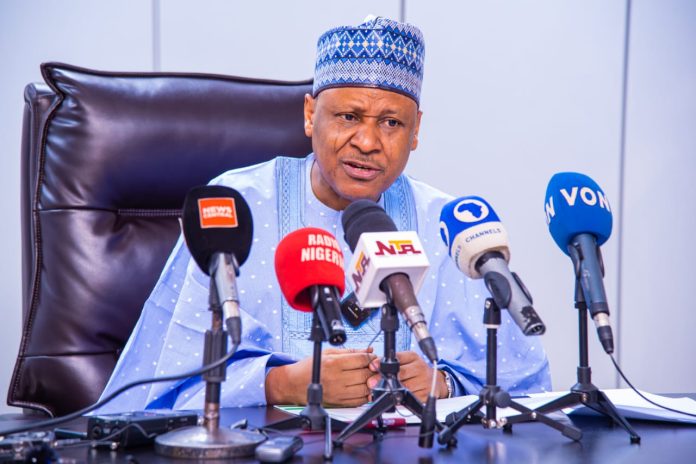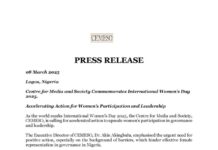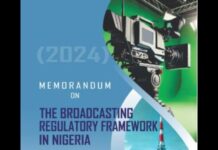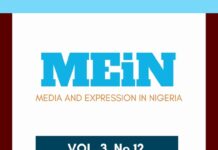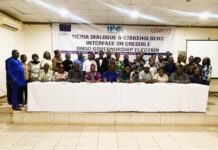The Federal Government has affirmed its commitment to press freedom and the reform of the information and broadcasting sector in Nigeria.
The Minister of Information and National Orientation, Mallam Mohammed Idris, made this declaration in Abuja while welcoming a team of stakeholders led by the Executive Director of the Centre for Media and Society, Dr. Akin Akingbulu.
As one of the partners implementing the European Union Support to Democratic Governance (EU-SDGN) Phase II project, the visit is part of an intervention for media growth in Nigeria and seeks an outcome that empowers the media, including new media, to promote fair, ethical and inclusive coverage of the electoral process and combat hate speech and disinformation.
Dr. Akin Akingbulu who lead a team of stakeholders hinged the conversation to further strengthen professionalism of the media and institutional capacities toward building
stronger democracy and development in Nigeria.
Presenting key observations in the media space requiring intervention, Dr Akingbulu itemized issues of Press freedom, reforms of media laws, broadcast reforms, community broadcasting, inclusion, and citizen engagement.
Dr. Akingbulu stressed the need to bolster press freedom by reviewing and amending relevant sections of the Constitution, repealing colonial-era laws on sedition and criminal defamation, and enforcing the Access to Information Law.
These steps, he argued, would create an enabling environment for media professionals to operate effectively.
He also highlighted the slow pace of reform in the broadcasting sector, particularly concerning the National Broadcasting Commission (NBC) Act and advocated granting independence to the NBC, empowering it with full regulatory powers, ensuring inclusive leadership, and prioritizing the protection of liberty and sustainability within the industry.
Furthermore, Dr. Akingbulu emphasized the importance of strengthening community broadcasting to address development needs.
He underscored the necessity of inclusion, particularly for under-served populations such as women, youth, and persons with disabilities, calling for the implementation of relevant legislation to promote their cause.
In response, Mallam Mohammed Idris assured the stakeholders of the government’s dedication to press freedom, citing its fundamental role in democracy.
He acknowledged the concerns raised regarding the need to review and amend relevant laws to strengthen press freedom and affirmed the government’s commitment to upholding the Freedom of Information Law while promoting responsible journalism.
Regarding the reform of broadcasting legislation, Mallam Idris acknowledged the challenges faced by the sector and emphasized the importance of accountability and transparency. He highlighted the significance of strengthening community broadcasting and hinted that efforts were underway at engaging multilateral organization, such as UNESCO to deepen community radio in Nigeria.
Assuring that the recommendations presented by the stakeholders would be considered, Minister Idris reiterated the importance of inclusion for under-served populations and pledged to implement provisions of relevant legislation to promote their interests.


